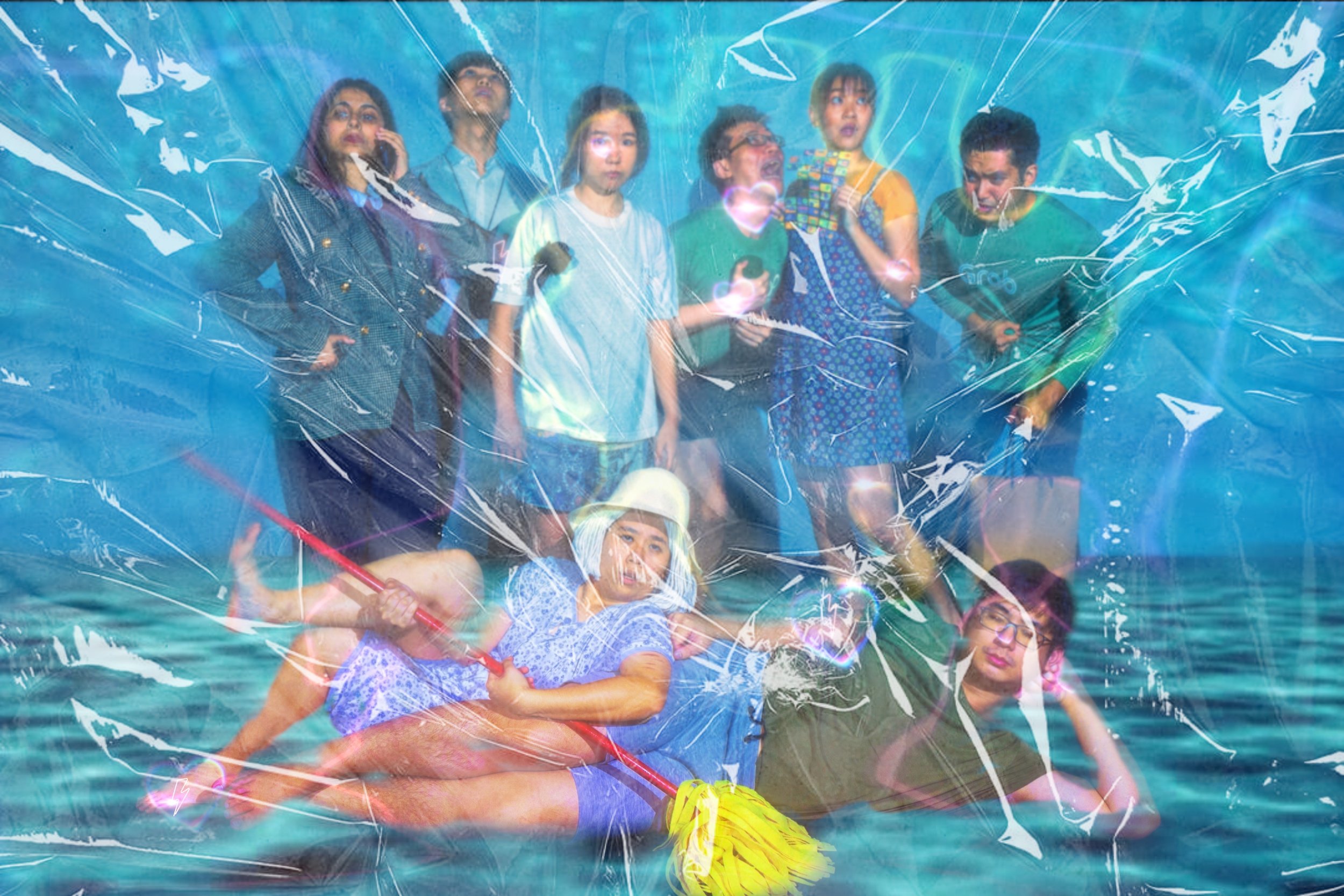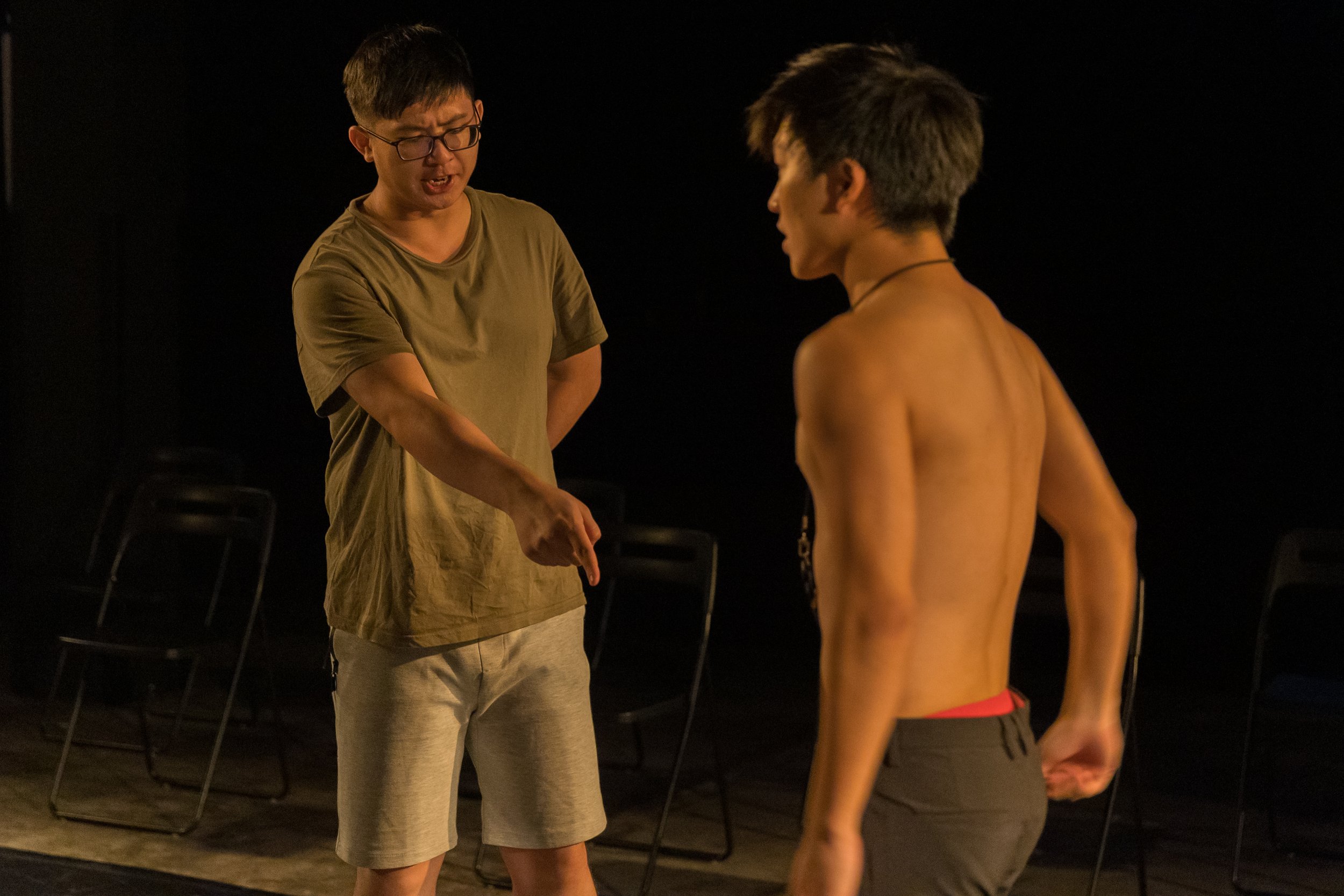Lee Shu Yu’s Experience [she/her] - a performance review
No Longer Adrift: Split Theatre’s I’m Always With You
(This review is written by Lee Shu Yu from Spacebar Theatre.)
If you are new to a Split Theatre experience, leave your inhibitions at the door.
Come in tabula rasa, ignore any itch for meaning-making and let the encounter wash over you like an oncoming tide you will be both in awe and terrified of.
This is because Split Theatre’s experiences often leave one’s head spinning if one tries to look for the usual theatrical cues or a traditional narrative. Many of their recent experiences are part of something much greater, often being the end-point of self-development programmes such as Work on the Self, led by Split’s artistic director and coach Darryl Lim. I had the opportunity to document Work on the Self in September 2021, and that stint gave me valuable insight into how the personal “associations” and “journeys” of the participant-turned-actors are significant fodder for devising the showcases, which explains why these works are often opaque to unfamiliar audiences.
I am used to being lost at sea with Split Theatre, which is why I am surprised that their latest work I ‘m Always With You does not leave me washed up.
I’m Always With You comes at the end of a new programme called Work on Resigning and responds to Haresh Sharma’s 1997 play, Sea. The premise of Sea is of two sisters on a boat trip sharing stories of ‘adventure, humour and horror’, as the synopsis states.
Split Theatre’s rendition on the other hand, introduces eight archetypes on a boat: The Sergeant Major, The Grab Driver, The Insurer, The Top 1%, The Auntie, The Cleaner, The Teacher and The Nerd. Throughout the hour-long experience, the archetypes mostly interact in duos or trios, causing rising tensions as they seek their own aims and disavow others. At the end of the show, each learns to leave behind their own ‘self-importance’, or do they?
While those unfamiliar with Sharma’s text and Split’s style may be caught off-guard by its meandering nature, the work proves to be disarmingly charming. I m Always With You is fast-paced, unpredictable but ultimately shows off the ensemble’s synchronicity and strong theatrical presence.
The experience benefits from responding to Sea. Archetypes, a setting and consistent patterns in dialogue help orient audiences – a much needed sign-posting to access Split’s bold style.
Split’s signature unabashed energy and unpredictable direction still drives the experience: the cast members chant refrains that grow in volume and intensity, the dialogue is purposely mis-matched; there is unexpected cussing, dance, and musical numbers for no rhyme or reason.
These help I’m Always with You become a playground for audiences to find patterns, appreciate the ironies and contrasts across characters. The work is at its strongest when it see-saws between making and losing meanings and power through wordplay, soundscapes and physicality.
For instance, in one scene, the controlling Sergeant Major instructs a topless Insurer to deliver his catchphrase – “Do you feel like you are not covered, just like me?”– over and over, in a variety of ways. The result is a lightly sultry and slightly homoerotic opening that escalates into a power play between the two. It eventually devolves into an overbearingly loud and tiring sequence where the Insurer is running on the spot, belting out the line until it loses all meaning and sentimentality.
In another scene, The Grab Driver and The Top 1%, list things that they award “5-stars”— the former’s list includes romantic sentiments while the latter lists luxury brands. Sreya Sanyal delivers unexpected emotional realness as the Top 1%, which adds a refreshing dimension to the archetype. This scene transitions into the ensemble singing the national day song Five Stars Arising in a different key to the original, an eerily dystopic tonality that prompts us to contemplate our society’s pursuit of superficiality over sincerity.
Much of the work carries on in these thinly-linked snippets, which makes for a constantly stimulating experience of surprising, contrasting and mutually-undermining semiotics. Be warned, Split Theatre’s love for vibrant soundscapes also include the echoey wet plop of poo and pterodactyl shrieks, breaking all sense of decorum. But between colourful design choices and playful, subversive writing, it is the seasoned ensemble work that shines through, tying all the elements together with strong pacing and watchable group dynamics.
Split Theatre’s intentions are oftentimes better experienced than explained, and that is perhaps the strength of I’m Always With You’s response to Sea. To quote the foreword of Shorts 2 (the collection in which Sea can be found), strong directorial interventions by Split Theatre’s director Darryl Lim has made for “powerful and memorable stage moments, often transmitting interesting tensions that words alone would have taken a longer time to effect.”
In all, I’m Always With You is an experience that is shrouded in discomfort and intrigue, but it is also beautiful in its composition, showcasing the best of the ensemble’s teamwork, training and playfulness.
—
I’m Always with You is available to watch on demand here. This review is also published on Critics Circle Blog.






